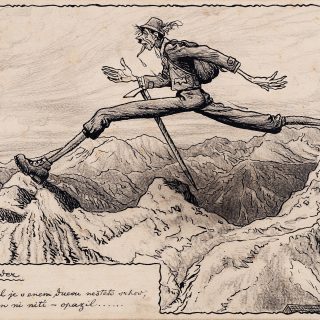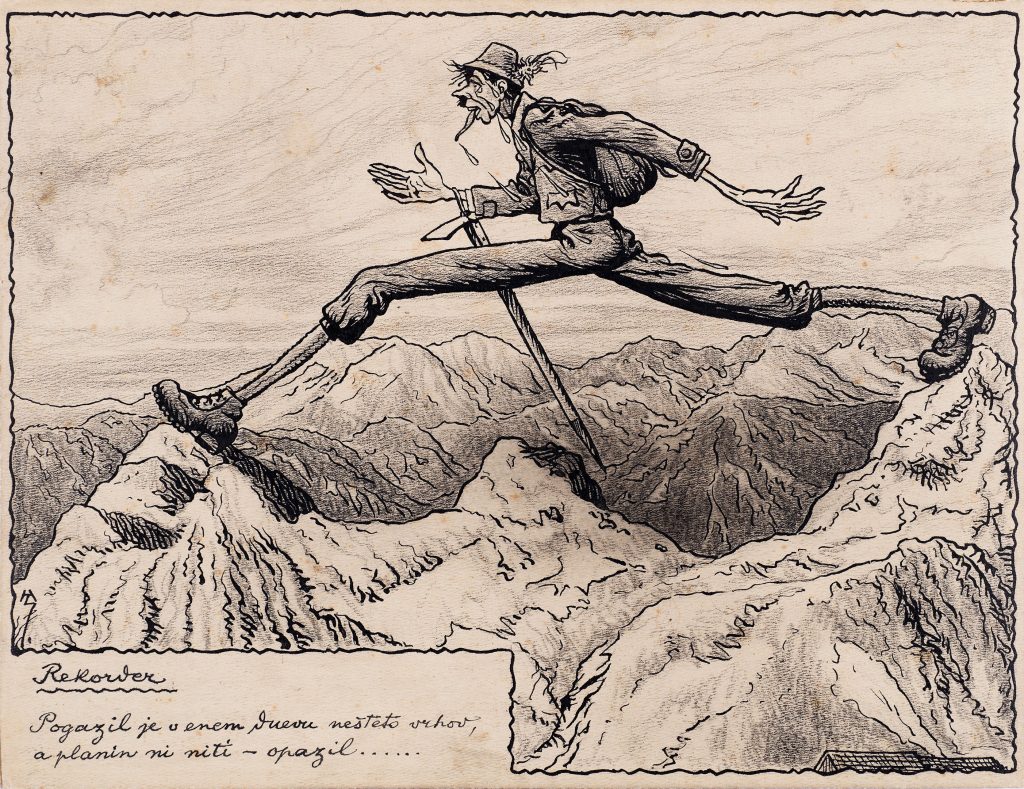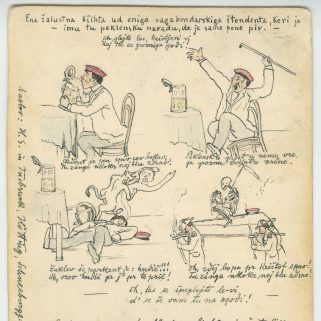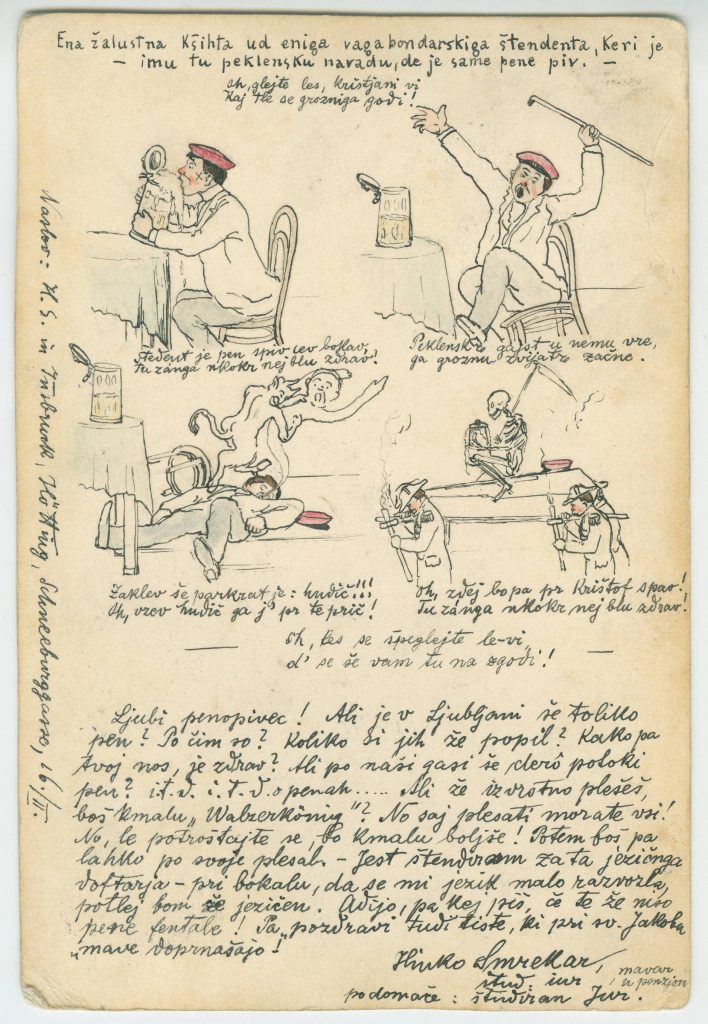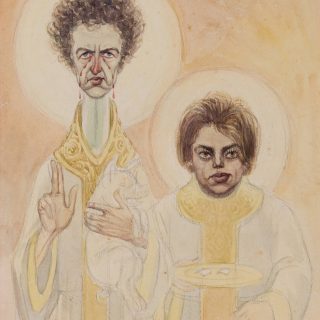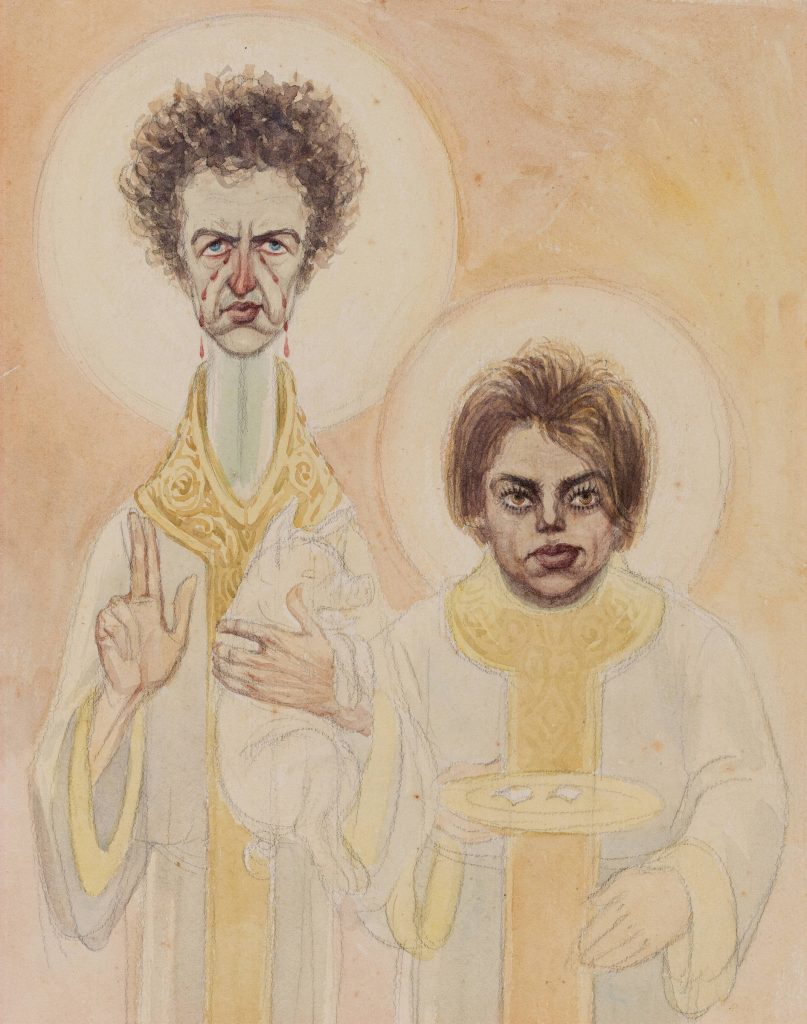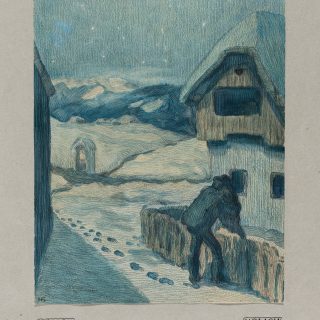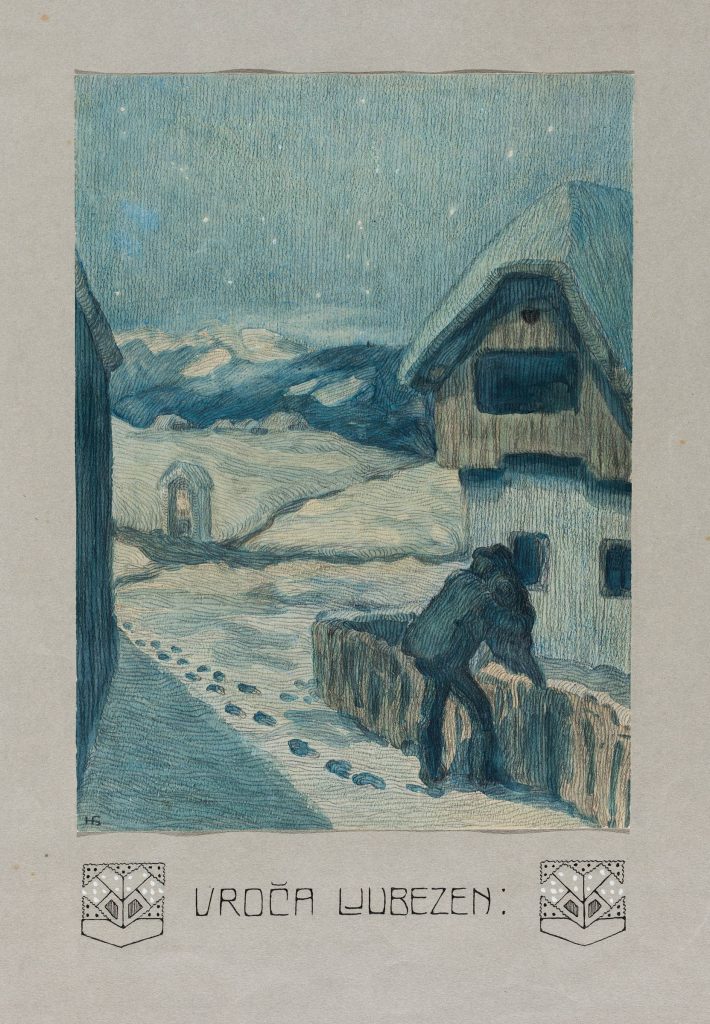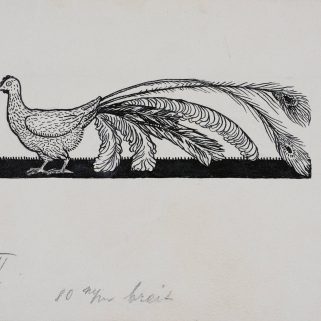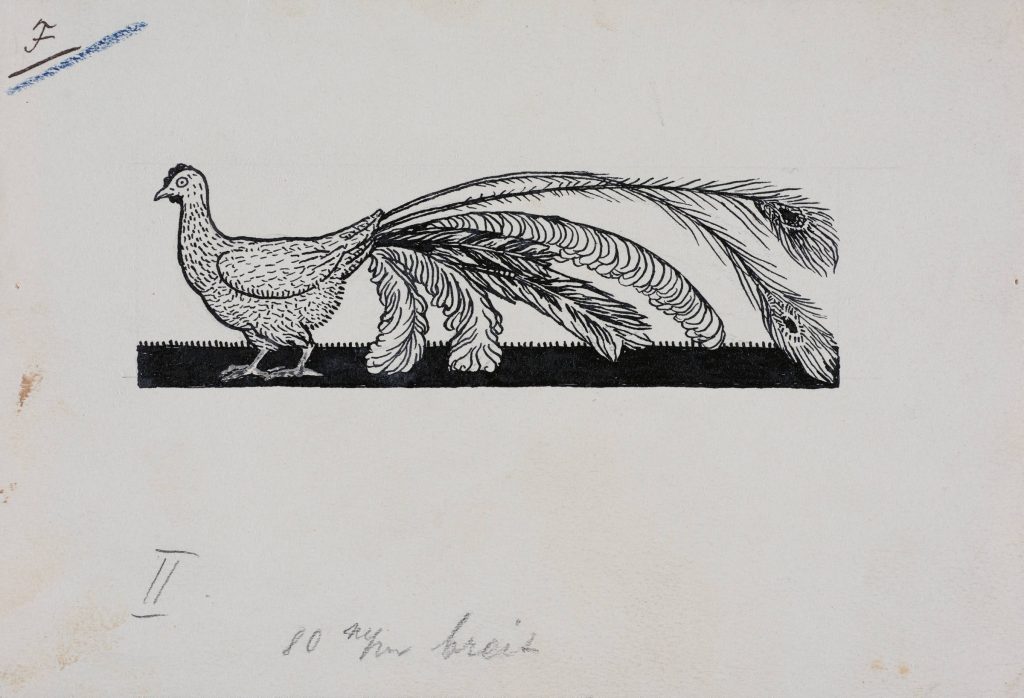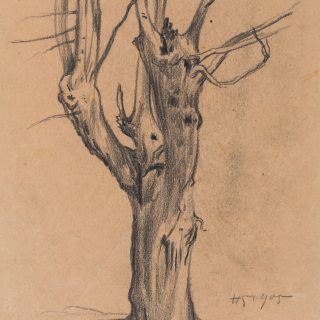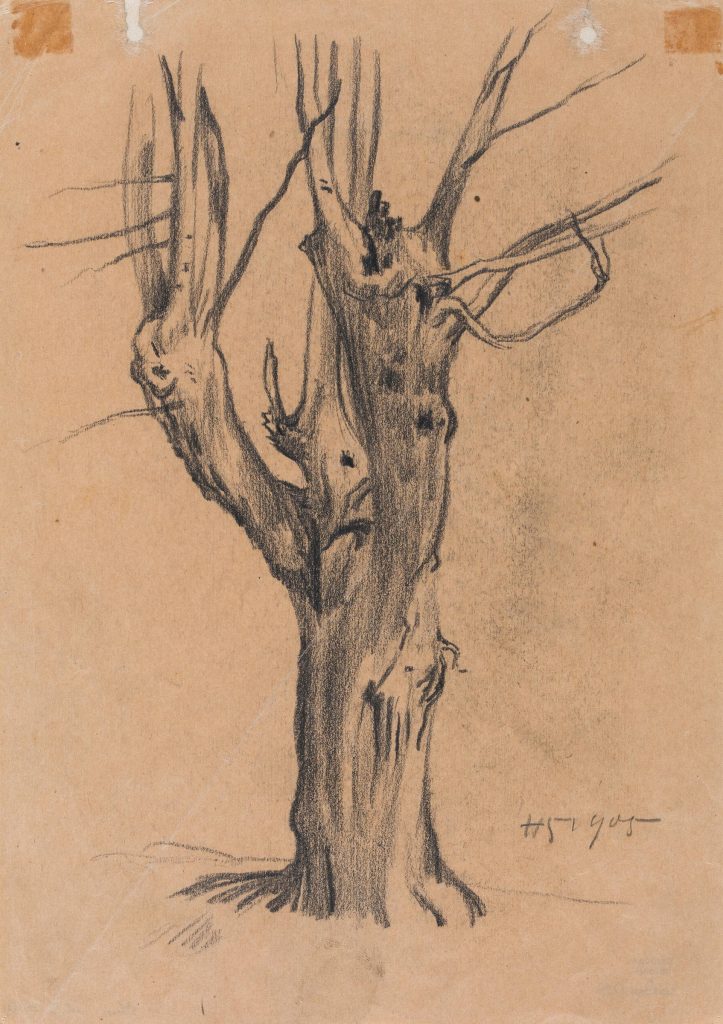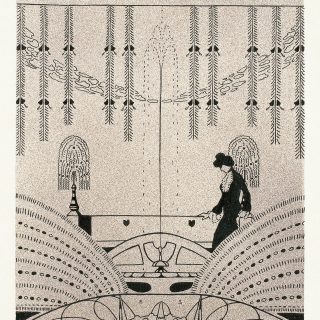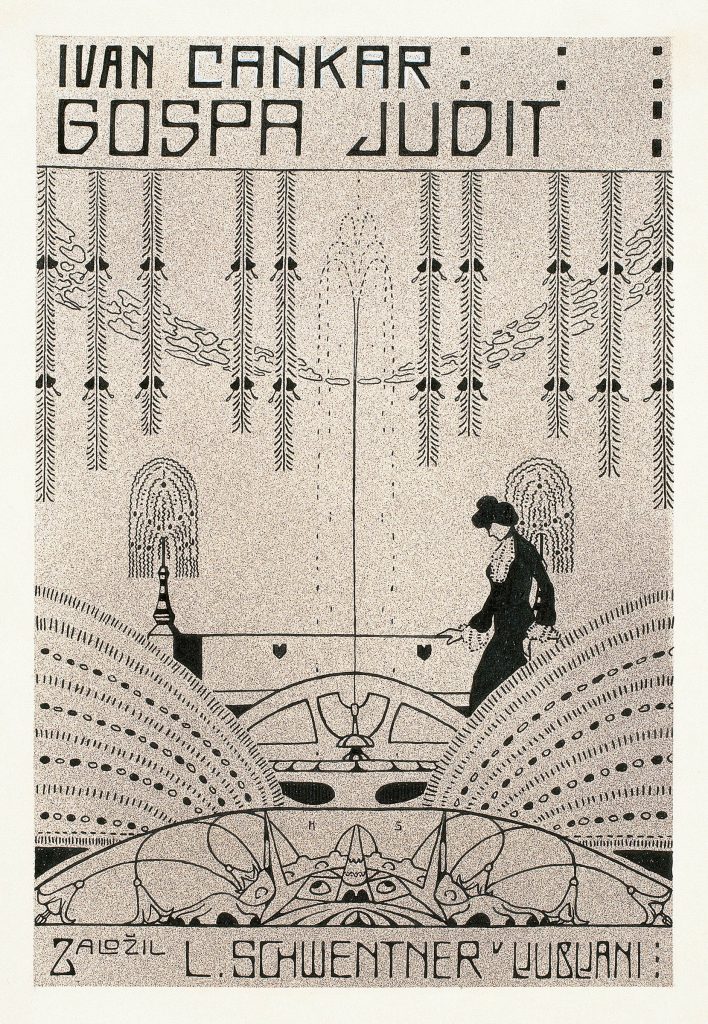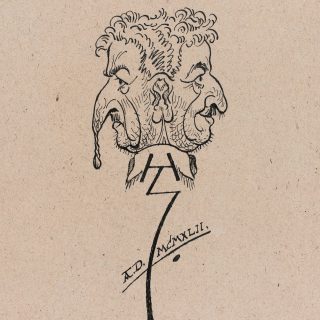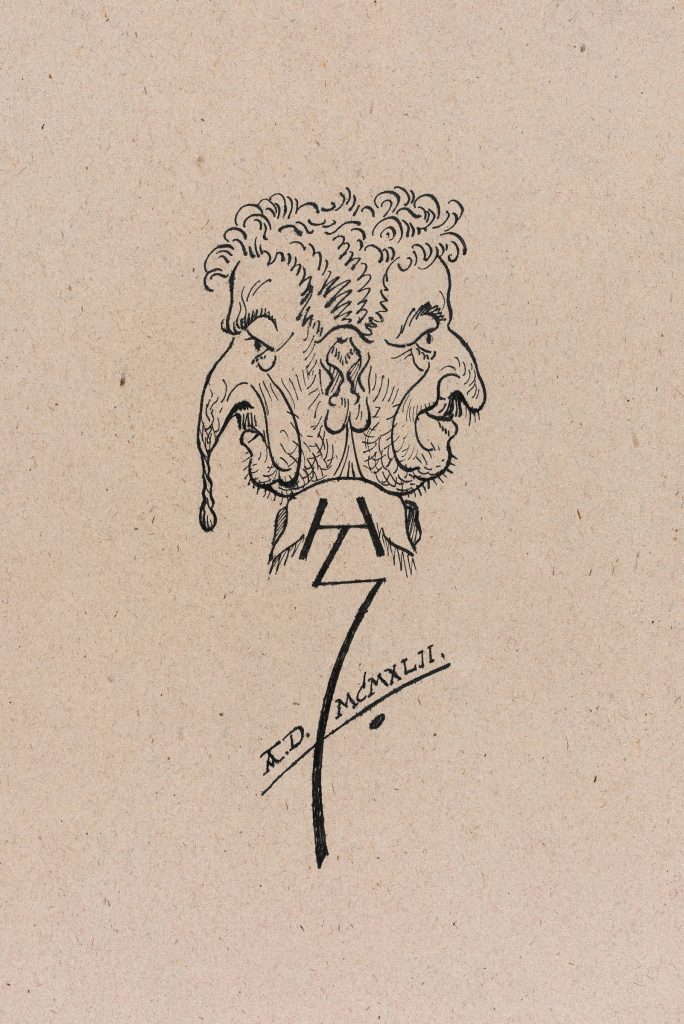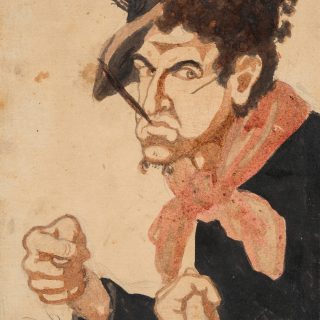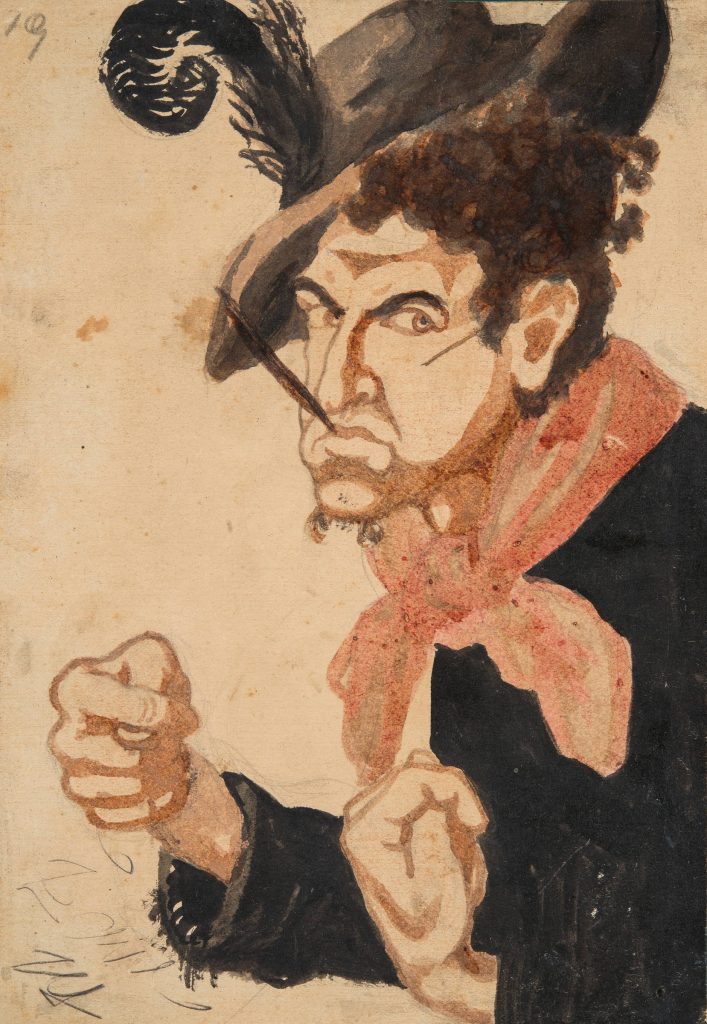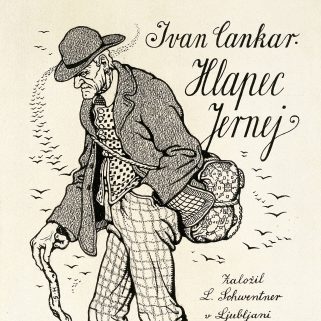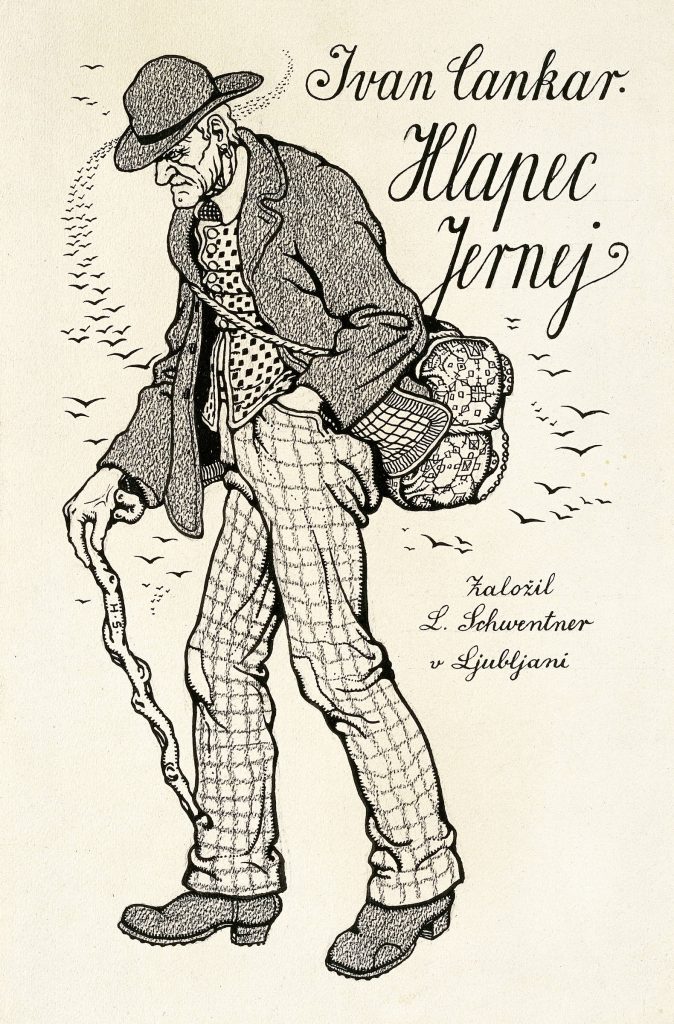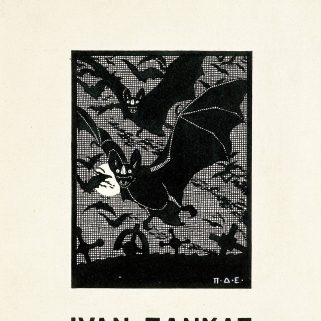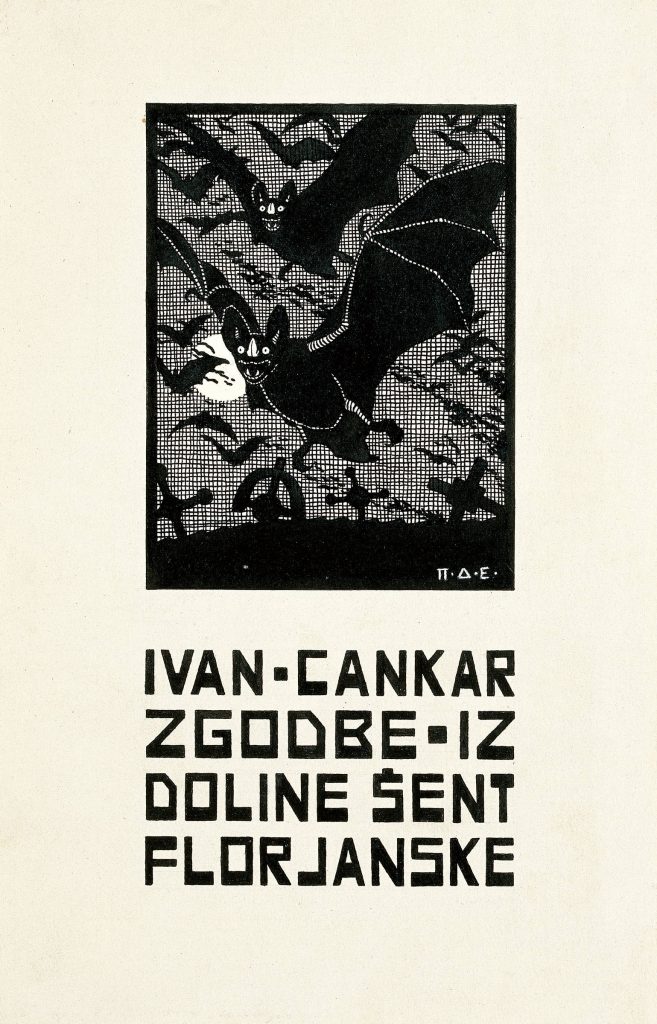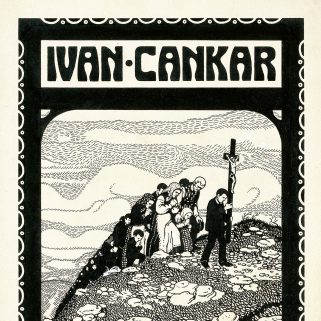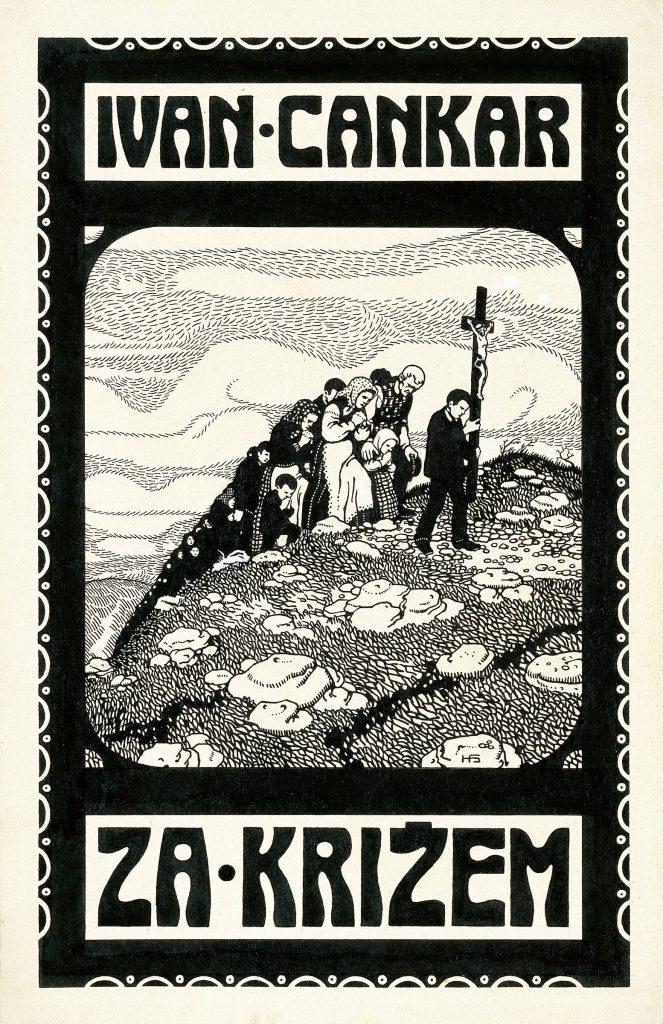Hinko Smrekar’s creativity is so extraordinarily rich and diverse, so complex and unfathomable in its nature, that it is only natural to wonder about the special reasons and circumstances that lay behind it. We can attribute the diversity of his oeuvre to the fact that he would take on any job in order to earn a living: illustrating books for different readerships, designing certificates, advertisements and ex libris, creating caricatures and works of social and political satire and drawing folk scenes that had certain commercial appeal, particularly on postcards. On the other hand, however, there are his large-scale drawings and prints featuring fairy-tale creatures and scenes from popular superstition and folk myths, which he created for his own personal satisfaction, prompted by his own interest. These are the works which we consider to be Smrekar’s finest in terms of quality, and they are also the most direct and sincere. They are followed by his works of social criticism, born out of his own personal experiences, in which he responded, in the guise of an apocalyptic seer, to current events. All these genres are repeated throughout Smrekar’s creative career – a career which saw him adapt his technique and mode of expression to the subject and purpose of the work: from forceful impetus to total passivity, from softness to sharpness, from composure to eccentricity, from fantastic visions to painful reality, from virtuoso draughtsmanship to a curious failure to grasp the techniques of oil painting. Contradictions of this kind are unusual in fine art, and if we add Smrekar’s poor health to all the other circumstances, his oeuvre as a whole becomes even more enigmatic.
It would be no temerity or exaggeration to describe Smrekar as a genius – so rich, imaginative and powerful in his manner of expression that he could not said to belong to any existing artistic movement. The painter Saša Šantel wrote the following on the occasion of Smrekar’s fiftieth birthday: “Smrekar is one of those artists who places experts in a quandary because he is too capable or, if your prefer, too stubborn to let himself be harnessed by the narrow fetters of the latest fashion dictated by Paris or Berlin.”

